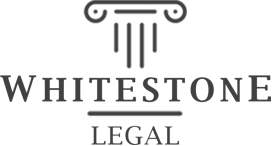explore the latest cases
F.A.Q.
What is a Power of Attorney?
A Power of Attorney is a legal document that gives someone else the right to
make decisions on your behalf.g
Does the law require everyone to have a Power of Attorney?
No. Making a Power of Attorney is voluntary. No one can be forced to make one.
What does the term “attorney” mean?
The term “attorney” refers to the person or persons you have chosen to act on your behalf. The person does not have to be a lawyer.
What does the term “mentally incapable” mean?
It means different things for different types of decisions and actions. For example, the level of mental capacity a person needs in order to make a valid power of attorney is different from the capacity needed to make personal care or financial decisions. The definitions are provided below under the topic headings.
Can I express my wishes in advance?
Ontario laws recognize that your known wishes expressed while mentally capable about your future care choices, will be binding on your attorney or other substitute decision-makers, unless they are impossible to follow.
Ontario law does not use the term “living will’. Sometimes people use the term “advance directive” to refer to a written statement of wishes about future care.
Is an “advance directive” the same thing as a “Power of Attorney”?
No. A Power of Attorney is a legal document in which you name a specific person to make decisions on your behalf. You can, however, write your treatment wishes (an “advance directive”) as part of your Power of Attorney for Personal Care so that you can be sure your attorney is aware of them. An “advance directive” just addresses your treatment and personal care wishes and does not need to name anyone or be written in any specific way.
Is a Power of Attorney the same thing as a “Last Will and Testament”?
No. Your Last Will and Testament covers the distribution of your property after you die and only takes effect upon your death. A Power of Attorney only applies while you are alive and ceases to be effective upon your death.
Are there different kinds of Power of Attorney?
Yes. In Ontario there are three kinds of Power of Attorney:
- A Continuing Power of Attorney for Property (CPOA) covers your financial affairs and allows the person you name to make decisions for you even if you become mentally incapable.
- A non-continuing Power of Attorney for Property covers your financial affairs but can’t be used if you become mentally incapable. You might give this Power of Attorney, for example, if you need someone to look after your financial transactions while you’re away from home for an extended period of time.
- A Power of Attorney for Personal Care (POAPC) covers your personal decisions, such as housing and health care.
Do I have to register my Power of Attorney with the government?
No. There is no requirement that these documents be registered. The government does not keep a registry. It makes sense, however, to make sure that the people in your life who need to know about these documents – especially your attorney – have a copy or know where to get one if needed.
Is a Power of Attorney effective outside of Ontario?
It depends on the law of the particular place where you want to use the Power of Attorney. If you are going to move, or be out of the province for some time, you may want to check with a local lawyer to see if you need to make new documents.
If I don’t make a Power of Attorney, will the government automatically step in if I can’t manage my own affairs?
No. In these circumstances a family member has the right to make your health care decisions or apply to become your “guardian” of property. Alternatively, someone else – such as a close friend – could apply to make decisions for you in these matters. The government, through the Office of the Public Guardian and Trustee (OPGT), acts only in situations where it is legally required and where no other suitable person is available, able and willing.
For more information about applications for guardianship please see the brochure entitled “Becoming a Guardian of Property”.
Do I have to use a lawyer to make my Powers of Attorney?
The law does not require you to use a lawyer’s services. However, you may wish to consider hiring a lawyer, especially if your affairs are complicated.
Is my Power of Attorney valid?
If the document is properly completed, signed and witnessed, and you had the legal capacity to give the POA there are no further steps that need to be taken in order for it to be legally binding.
Please note the POA must be witnessed by two individuals who are eligible to serve as a witness. Some people, for example, your spouse and children, are not allowed to serve as a witness to you signing the POA. Please see the OPGT’s POA Kit for complete instructions. You may also wish to obtain legal advice.
Neither the Attorney General’s office nor the Office of the Public Guardian and Trustee keep a record of Power of Attorney documents, so there is no need to submit one in order for it to be legally binding. It is also not necessary to have a lawyer review the documents, although this may be helpful to ensure they are executed properly.
While not required under the Substitute Decisions Act, 1992, a person being asked to recognize a Power of Attorney may require a notarized copy of, or the opportunity to see the original Power of Attorney, before dealing with an attorney in place of the grantor. This requirement provides additional assurance that the attorney has authority. Requiring the attorney to produce the original for inspection or provide a notarized copy helps establish that the original document is still in existence and is in the attorney’s possession. As well, if a notarized copy is produced, it reduces the risk of potential fraud as the notary is required to compare the original Power of Attorney to the copy prior to notarizing the copy.
Will the OPGT agree to be appointed in a Power of Attorney?
The OPGT rarely consents to act under a Power of Attorney. The OPGT’s mandate is to make decisions as guardian for mentally incapable adults who have no one else available, willing and suitable to make decisions on their behalf.

